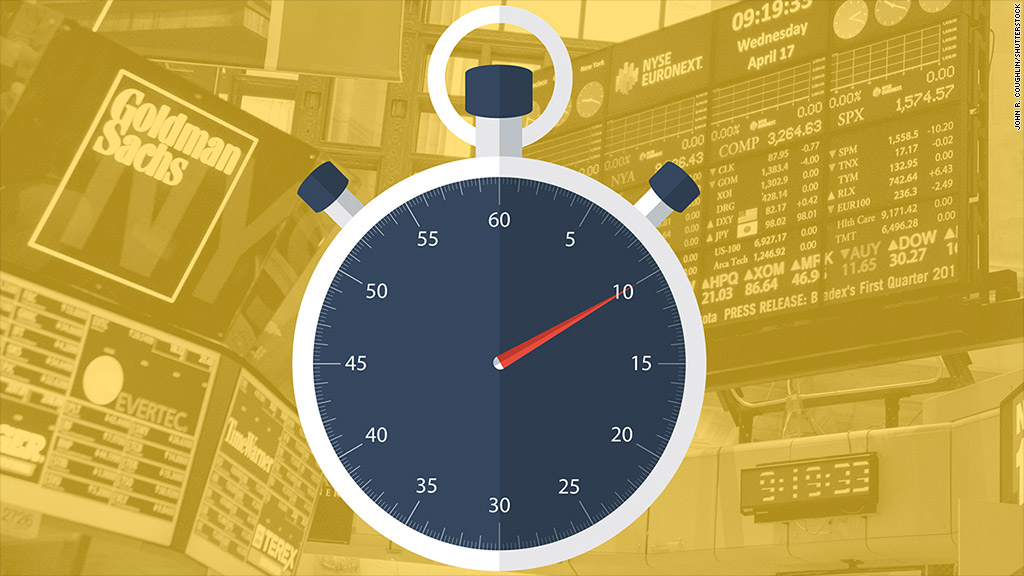
High speed traders are Wall Street's ugly ducklings. They have come under fire for using sophisticated computer technology to game the market. Now one of the regulators overseeing them may actually be helping the rapid traders, according to a study released Friday by researchers at Columbia Law School.
The study found that for around $15,000 per year, the Securities and Exchange Commission's data feed delivers company filings to subscribers about 10 seconds ahead of when the filings first appear on the agency's website.
Related: SEC awards $30 million to whistleblower
Keep in mind that the SEC's mission is to create a level playing field for all investors.
The filings often contain market moving information on such things as acquisitions, corporate financial health, and executive stock holdings.
Time is money: Ten seconds doesn't sound like much in the real world, but that time gap is huge considering high frequency trading firms reap profits by moving in and out of stocks in milliseconds.
While it's tough to know for sure if high speed traders act on the early data, the researchers discovered "abnormal trading volume" in the seconds after the paying clients received it.
"This is a situation where the government tells investors that you can rely on the SEC's website, that this is the first place to get market-moving information," said Robert Jackson, one of the authors of the study, which looked at over 8,000 SEC filings over a ten week period this year. "A number of traders know that's not true, and have been making money on this for years."
Related: 'Flash Boys' in the hot seat at hearing
SEC blindsided? Jackson doesn't think the SEC meant for this "fast lane" to happen. Rather, he believes it was a mistake on the part of Attain LLC, the third party entity that operates the data feed.
"I think the SEC contracted this out to a third party, and didn't fully oversee what the third party is doing," he said. "And it turns out what the third party is doing is handing profits out to arbitragers."
Attain declined to comment.
The SEC says it's reviewing the Columbia study as well as a working paper by a team at the University of Chicago and University of Colorado, which did a did similar analysis using data going back to 2012 and got comparable results.
"We are conducting a thorough assessment of the dissemination process, including timing increments, and will make any systems modifications that may be necessary to optimize the dissemination of information to investors and the markets," said an SEC spokesperson in an emailed statement.

The lag time from the data feed and the initial posting of company filings on the SEC's website has started to narrow since October 29th when the Wall Street Journal ran a report previewing the academics' discoveries.
But Jackson, who subscribes to the data feed himself, says it's not completely fixed. About one-third of company filings still hit the SEC's website 10 seconds after he sees them on the data feed.
High frequency crackdown: This isn't the only case of high speed trading firms having arrangements with data providers for faster market information.
Related: Make high-speed trading illegal: Schwab
Earlier this year, Businesswire, a company that distributes corporate press releases, announced it will no longer sell a direct feed that injected news releases directly into high speed trading companies' internal systems.
And last year, under pressure from New York Attorney General Eric Schneiderman, Thomson Reuters decided to stop selling certain economic data to fast traders two seconds before the public saw it.
But the fact that the SEC is involved adds a new layer of concern.
"This is the kind of thing that undermines investors' confidence in our markets,"said Jackson.


